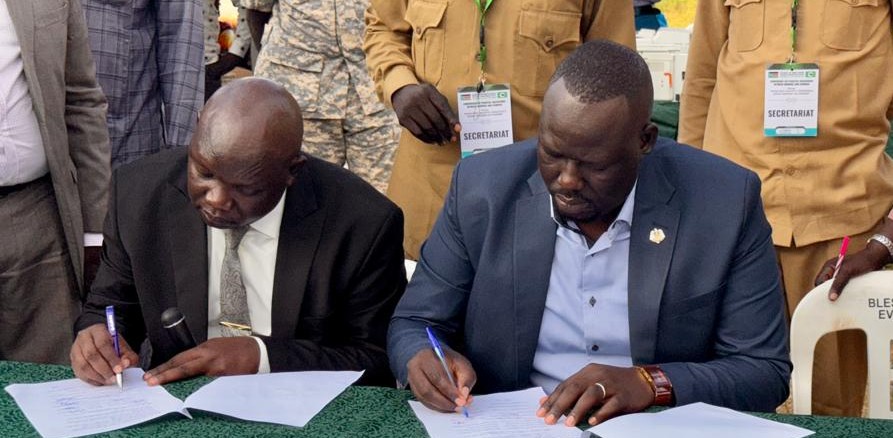
A three-day peace conference uniting herders from Terekeka County and farmers from Juba County ended Friday with firm commitments to reconciliation, peaceful coexistence, and sustainable conflict resolution.
The dialogue, held in Kuda from August 27–29, brought together community leaders, traditional authorities, government officials, and representatives of both groups, facilitated by the United Nations Mission in South Sudan (UNMISS) and the Whitaker Peace and Development Initiative (WPDI).
Delegates stressed the urgency of ending recurring clashes, crop destruction, and insecurity that have strained relations for years. Key issues raised included uncontrolled cattle grazing, destruction of beehives, sexual harassment of women collecting firewood, widespread firearms, cattle theft, and weak law enforcement.
After extensive dialogue, participants agreed to forgive past conflicts and embrace unity. Herders will relocate cattle to their areas of origin and seek permission before grazing in farming zones. Designated grazing areas with water access will be established to prevent crop damage.
Farmers were urged to report grievances to local authorities instead of resorting to retaliation. Traditional leaders will guide youth against violence, discourage road ambushes, and strengthen accountability.
The resolutions also called for disarmament of youth, creation of community courts for cattle-related disputes, and protection of women from sexual violence. To minimize migration into farming areas, water catchments will be built in Terekeka and Tijor.
The resolutions were signed by community representatives and witnessed by senior state officials, including the Central Equatoria Minister of Peace Building, county commissioners, and members of parliament. International partners, civil society, and religious leaders endorsed the commitments and pledged continued support for peacebuilding efforts.
The agreement marks a major step toward reducing farmer–herder clashes in Central Equatoria. If fully implemented, it could serve as a model for resolving similar conflicts across South Sudan.

